My Turn: Inflation Reduction Act’s smoke and mirrors
| Published: 03-30-2023 12:42 PM |
I just read the column by Madeleine Para and Linda Butler and their glowing accolades on the Inflation Reduction Act, or as many of those in the lower income brackets call it, the biggest transfer of money from those with lower incomes to those in the higher income brackets in history. [“Inflation Reduction Act good deal for climate,” Recorder, March 27.]
As many are aware, a lot of people have seen any increase in their income gobbled up by the increased price of just about everything they buy. Those who were struggling to make ends meet before inflation hit will never be able to take advantage of all these new programs, and will never see any savings from them.
If you couldn’t afford to buy a new car, or solar panels on your roof with new heat pumps to go with them, before inflation started, how can you possibly spring for a new $40,000 dollar car, or expensive solar or heating systems to take advantage of these savings they talk about now?
Spending $100,000 beyond all the credits available for a new car, solar panels, heat pumps, etc., to save $1,000 a year is just plain smoke and mirrors, and isn’t going to happen.
These are strictly programs for those with money in the bank, or incomes high enough to leave something for judicial spending, which most likely puts you at or above the median income level, and means if you are accepting any of this “free” money you are taking advantage of most of those below that level, whether you like to be included in this category or not.
Moving on beyond those facts, I had to read all the way down to column’s third-to-last paragraph to see what the writers’ real intent was, getting people on board with deregulation of the utility industry to allow them to slam in more power transmission lines to move the massive amounts of power needed in the big population areas from all the rural areas of the state where they assume everyone will be willing to jump on board to build massive solar industries to support the growing need.
They lament that it now takes years to build a new line because of all the current rules in place, of which a good portion of them are to ensure there is little negative impact to the environment, or the communities, and people affected by them.
The writer don’t mention that solar farms require three phase power, which requires taller poles and wider cleared areas each side of them, or the fact that that means in many cases removing roadside trees along existing lines through local towns and villages in order to reach all the scattered solar sites. This mindset completely ignores the fact that massive amounts of forest and farmland will have to be destroyed in order to achieve this pipe dream.
Article continues after...
Yesterday's Most Read Articles
 Orange man gets 12 to 14 years for child rape
Orange man gets 12 to 14 years for child rape
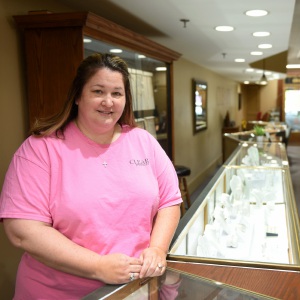 Cleary Jewelers plans to retain shop at former Wilson’s building until 2029
Cleary Jewelers plans to retain shop at former Wilson’s building until 2029
 Greenfield Police Logs: April 2 to April 8, 2024
Greenfield Police Logs: April 2 to April 8, 2024
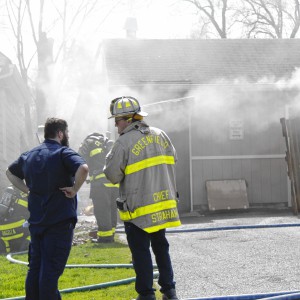 Fire scorches garage on Homestead Avenue in Greenfield
Fire scorches garage on Homestead Avenue in Greenfield
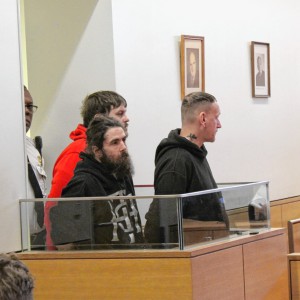 One Greenfield home invasion defendant up for bail, other three held
One Greenfield home invasion defendant up for bail, other three held
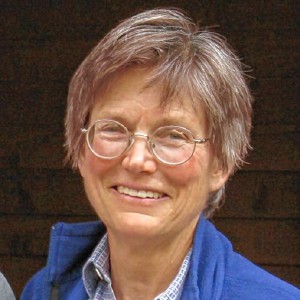 Two local school advocates tapped to lead state’s new Small and Rural Schools Committee
Two local school advocates tapped to lead state’s new Small and Rural Schools Committee
I have never seen any statistics published showing what the loss of all this carbon sequestration, the raw materials mined, etc., equals to in comparison to the savings of an electric vehicle versus a gas-powered one, but if I had to venture a guess, I would bet that when all is said and done the loss would be greater than any gains, creating even more global warming problems.
The large population areas mentioned in the column need to mandate use of every single available space, rooftops, parking lots, highway medians, landfills, etc., and reassess the impact of all of that before they start looking west to the rural areas that contribute so much to helping mitigate the effects of global warming.
I have been around cattle all my life, and have firsthand experience with what the organic material emitted from the north end of a southbound bull looks and smells like, and it is not unlike this thinly veiled lobbying piece for the utility industry, and the large population areas to the east of here, and their unyielding quest to take advantage of the rural areas of the commonwealth.
I hope that our local legislators, environmental groups, and local leaders will take note of this issue and watch it’s development closely, it is not going to go away, and it will affect the quality of life of the entire area if they manage to persevere.
Warren Rice is farmer and retired construction worker and lives in North Orange.

 My Turn: Saving planet Greenfield
My Turn: Saving planet Greenfield Gary Seldon: Solar Roller Earth Day River Ride
Gary Seldon: Solar Roller Earth Day River Ride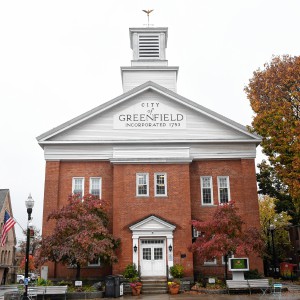 Mitch Speight and Joan Marie Jackson: City should follow constitutional ruling on property takings
Mitch Speight and Joan Marie Jackson: City should follow constitutional ruling on property takings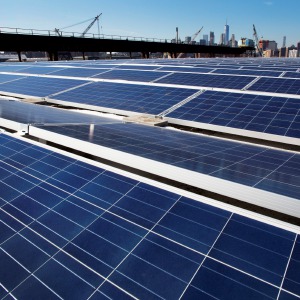 Columnist Johanna Neumann: Reaping the rewards of rooftop solar
Columnist Johanna Neumann: Reaping the rewards of rooftop solar
